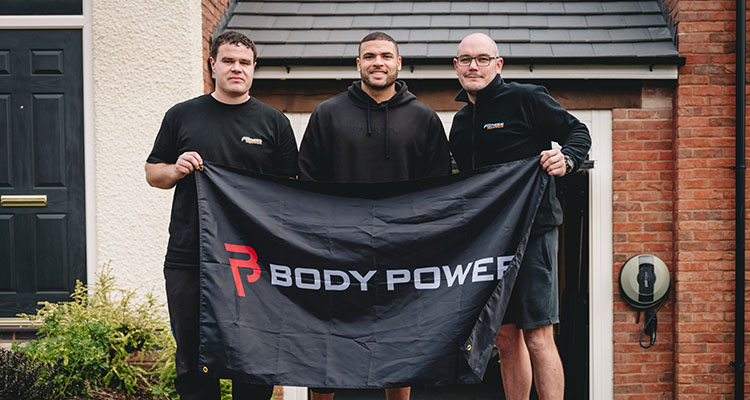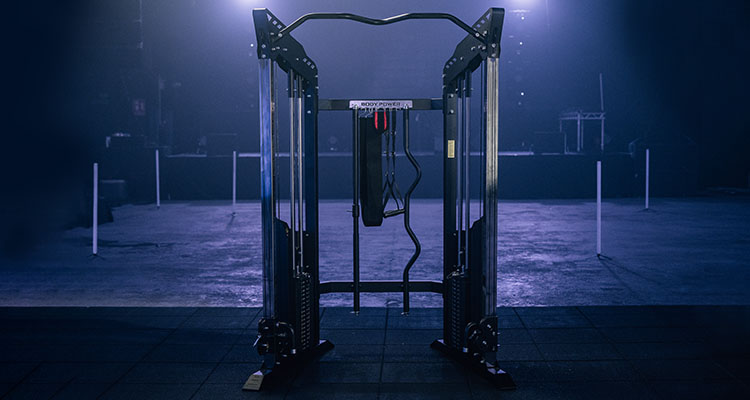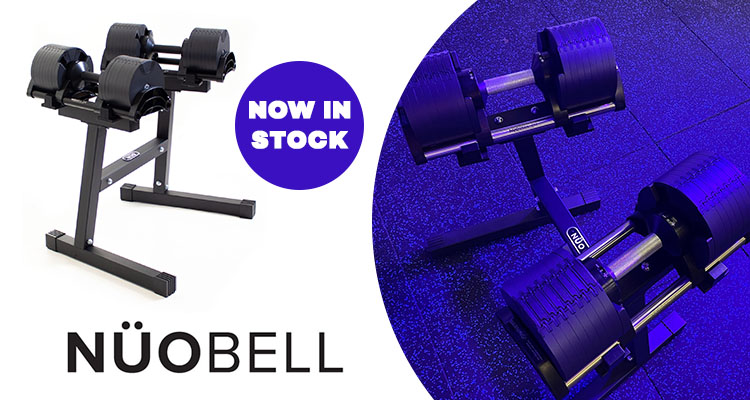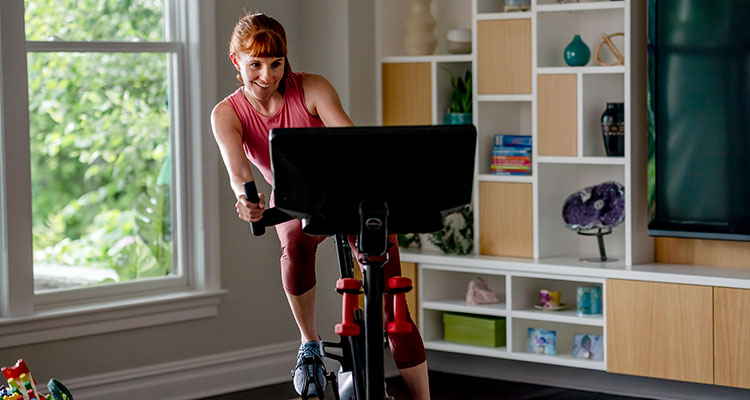Success Story – Ian Runs 153 miles in under 30 Hours in Epic Spartathlon Ultra-Marathon
In the latest of our success stories, we talk to Ian Hammett, Fire Service fitness advisor and passionate runner, who recently took on one of the most iconic and demanding races in the world, the Spartathlon Ultra-Marathon in September 2017.
 Ever heard of the Spartathlon Ultra-Marathon? This epic test of endurance is one of the most iconic ultra-marathon races in the world, and deemed the toughest non-stop footrace in Europe. So exactly how far is this run? Oh, just a mere 153 miles! To put this into perspective for a second, a traditional marathon is 26.2 miles. This is over 120 miles more, or a traditional marathon run over 5 times! Starting from the Acropolis in Athens to the statue of King Leonidas in Sparta, it certainly provides some of the most enchanting views you’ll find on a race route.
Ian tells us all about the race, and his relationship with running…
Ever heard of the Spartathlon Ultra-Marathon? This epic test of endurance is one of the most iconic ultra-marathon races in the world, and deemed the toughest non-stop footrace in Europe. So exactly how far is this run? Oh, just a mere 153 miles! To put this into perspective for a second, a traditional marathon is 26.2 miles. This is over 120 miles more, or a traditional marathon run over 5 times! Starting from the Acropolis in Athens to the statue of King Leonidas in Sparta, it certainly provides some of the most enchanting views you’ll find on a race route.
Ian tells us all about the race, and his relationship with running…


 To read Ian’s full story, check out his blog RunHammyRun and follow his journey on Twitter @RunHammyRun
To read Ian’s full story, check out his blog RunHammyRun and follow his journey on Twitter @RunHammyRun
 Ever heard of the Spartathlon Ultra-Marathon? This epic test of endurance is one of the most iconic ultra-marathon races in the world, and deemed the toughest non-stop footrace in Europe. So exactly how far is this run? Oh, just a mere 153 miles! To put this into perspective for a second, a traditional marathon is 26.2 miles. This is over 120 miles more, or a traditional marathon run over 5 times! Starting from the Acropolis in Athens to the statue of King Leonidas in Sparta, it certainly provides some of the most enchanting views you’ll find on a race route.
Ian tells us all about the race, and his relationship with running…
Ever heard of the Spartathlon Ultra-Marathon? This epic test of endurance is one of the most iconic ultra-marathon races in the world, and deemed the toughest non-stop footrace in Europe. So exactly how far is this run? Oh, just a mere 153 miles! To put this into perspective for a second, a traditional marathon is 26.2 miles. This is over 120 miles more, or a traditional marathon run over 5 times! Starting from the Acropolis in Athens to the statue of King Leonidas in Sparta, it certainly provides some of the most enchanting views you’ll find on a race route.
Ian tells us all about the race, and his relationship with running…
Have you always been into fitness?
Yes, I love exercising, but I haven’t always been into running. I used to play a lot of football and the thought of going for a run really didn’t appeal to me. Then, 5 years ago, I decided to work on my fitness and started running 5ks. Before I knew it, I had joined my local running club, given up football and started competing in local races. I did my first marathon in 2013 and then, my first ultra-marathon in 2015.What inspired you to sign up for the Spartathlon Ultra-Marathon?
My friend Matt Blackburn sowed the seed when he mentioned it before Christmas last year (2016). He was going to sign up for the ballot and he told me that I had an automatic qualifying spot in the British Team (due to my race history). That captured my interest, so I went straight on the internet to see if he was right. He was, and between then and January when applications opened, I couldn’t stop thinking about it. I thought this could be a once in a lifetime opportunity that was too good to miss.Were the ultra-marathons you previously took part in similar?
None of the previous ultra-marathons I’ve competed in have ever been longer than 100 miles, so this race was set to be my longest challenge yet. I had also never run for more than 19.5 hours so the prospect of running for almost 36 hours was quite daunting.That is one long run! Did you get breaks?
No, there are no breaks, it’s a continuous race. You can stop at aid stations to grab food and drink but the longer you stay, the harder it is to get going again, so I tended to treat each aid station like an F1 pit stop!
How long did you prepare for the race?
As soon as I found out in March that I had been selected, I started preparing, so for 9 months really. However, things got really serious and focused from 1st July 2017. I was training twice a day, running over 100 miles per week and also trying to work on strength training 2-3 times a week. I would do sets of squats, lunges and core work in the gym, mainly using bodyweight and dumbbells. I would also utilize swiss balls and wobble boards to strengthen my knees and ankles for the repeated pounding on the roads. In the two weeks before I flew out to Greece, I trained in the Heat Chamber at the University of Bedfordshire’s Human Performance Centre in an attempt to acclimate to the heat I was likely to face. They had me training in temperatures ranging from 30-38 degrees, and 35-65% relative humidity. This preparation was to prove invaluable.Describe the race to us. How did you do?
The race is described as the toughest non-stop footrace in Europe and it certainly lived up to its billing. This iconic ultra-marathon sees its participants follow in the footsteps of the Greek messenger, Pheidippides who ran to Sparta to ask for their help in the battle against the Persian Army. Competitors are required to cover 153 miles in 36 hours, mostly on tarmac. However, after 100 miles, runners have to traverse Mount Parthenian before continuing their journey to reach Sparta. Standing at over 1000m in elevation, if the mountain was in the UK, it would make up the 3rd peak of the 3 peaks challenge, taking the place of Scafell Pike. This is an event that is not for the faint hearted. To add to the difficulty, each of the 75 checkpoints has its own cut off time, meaning that, with the constant threat of the death bus hanging over your head, you’re driven to push yourself to breaking point early in the race. I managed to complete this epic event in 28hrs, 36mins, 58 seconds, finishing 28th overall and as the 3rd British Runner to reach the statue. 369 competitors from around the world started the race and only 265 finished, which illustrates the difficulty level. It was a journey filled with incredible highs and lows, however it was without doubt the greatest event I have ever taken part in.
How did your training change to prep for the Spartathlon?
I really had to up the weekly mileage for this event, so I increased from the usual 80-90 miles of running a week to 110-120 miles. I even peaked with a 150-mile week. Due to the amount of downhill running that would also be involved, I would do lots of squats as well to ensure that my quads were as strong as possible. I also had to find a way to prepare for the heat that would await me in Greece. I couldn’t rely on the British summer to help with this so I had to run in several layers of clothing even on nice, hot days. I am sure you can imagine this resulted in many strange looks from people.What did your race prep diet look like?
My diet as a whole is usually very good, so I didn’t have to change too much. I made sure that I cut out all the usual treats and processed foods and opted for a lot of home cooked, highly nutritious meals. My breakfast would be a bowl of cereal, followed by some fruit during the morning, then a large salad for lunch. I would then have a healthy evening meal which was primarily vegetarian using beans, pulses and lentils or I would have some grilled fish or lean meat, such a turkey mince or venison sausages. This was accompanied by lots of vegetables, with usually some Greek yoghurt for dessert. If I had to snack, then I would graze on fruit, dried fruit and maybe the odd pitta bread with jam on. My favourite meals were roasted vegetable tagine with cauliflower couscous and turkey meatballs with roasted vegetables.What couldn’t you live without for your race prep?
I would have to say my physiotherapist. The regular sessions that she provided me with ensured that my legs coped with all of the training that I was doing and made sure that I steered clear of injury. She would also let me know if I was doing too much and also reassured me when the inevitable doubts would creep in about ‘have I done enough?’ and ‘am I ready?’. Her advice and support were priceless in the build up to the event.What did you miss that you couldn’t have/do during prep?
I gave up cake and ice cream during my preparation and, for anyone who knows me, that is a big deal. I have a very sweet tooth and enjoy a dessert, but I was focused on my training and had no room for empty calories. This proved particularly difficult on my training weekend in the Lake District. However, I managed to resist the temptation as there would be plenty of time for those after the race.What is your must-have piece of fitness equipment?
I would have to say my Garmin Fenix 3 GPS watch. I am a bit of a stats guy and love downloading the information from my runs to see my progress. It also allows me to plot a GPS route so I can go for long runs in places that I don’t know without the fear of getting lost.What’s next for you?
I am hoping to tackle the 145 mile Grand Union Canal Race in May 2018, as well as the Thames Path 100. I also have a couple of other ultra-marathons booked in the lead up to these including the Flitch Way 100km, and The South Downs Way 50 mile. For now though it is a case of rest, recharge and refresh. Spartathlon took a massive effort and commitment to complete and I am now looking forward to a few weeks’ recovery before resuming training, ready for 2018.What’s your advice to anyone who wants to sign up for a race?
Do it… don’t hesitate! Challenge yourself and believe that you are capable of much more than you expect. It is far easier to train if you have a goal to aim for and an event. Whether it be a 5km or an ultra-marathon will provide that motivation to help you get out of bed in the morning. You never know what you are capable of until you push yourself. To read Ian’s full story, check out his blog RunHammyRun and follow his journey on Twitter @RunHammyRun
To read Ian’s full story, check out his blog RunHammyRun and follow his journey on Twitter @RunHammyRun







